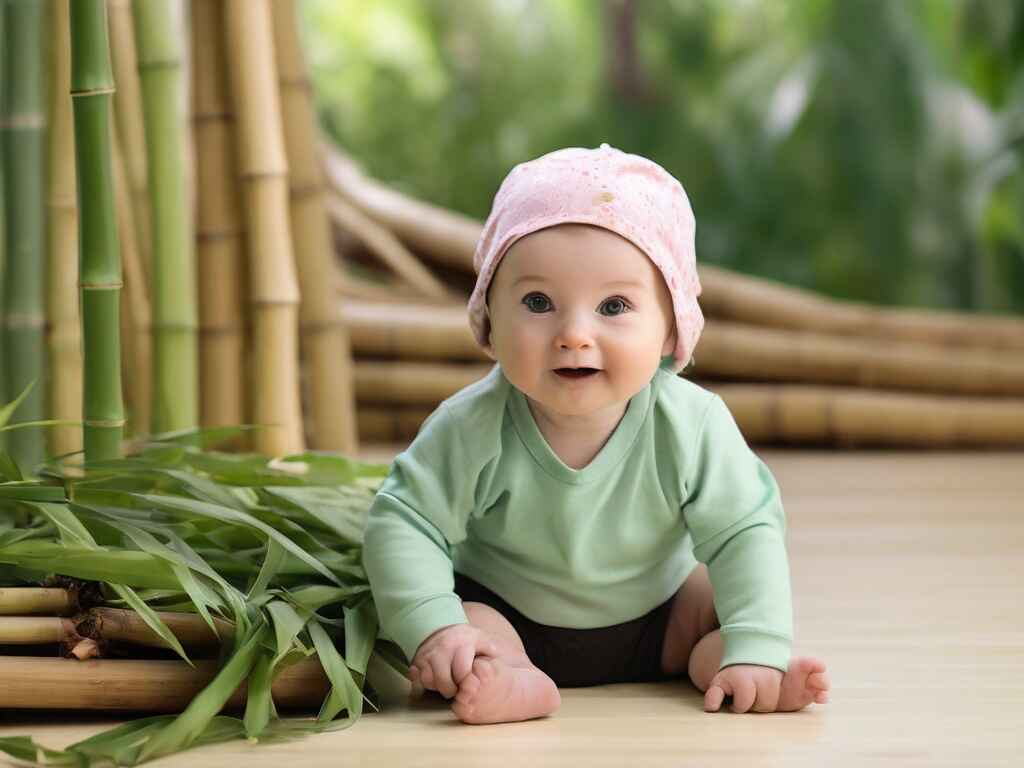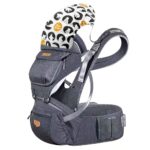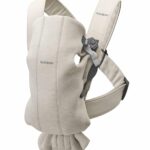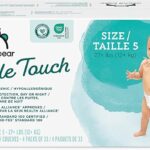Bamboo Vs. Disposable Overnight Diapers: Eco-Friendly Duel and biodegradable, while disposable overnight diapers offer convenience. Bamboo options are more sustainable, but disposables provide quick absorbency.
Choosing the right type of diaper for overnight use can be crucial for ensuring your baby stays dry and comfortable. Bamboo diapers have gained popularity among eco-conscious parents because of their biodegradable nature and lower environmental impact. Made from bamboo fibers, these diapers are soft, naturally hypoallergenic, and have good absorbency, making them a suitable choice for babies with sensitive skin.
On the other hand, disposable overnight diapers are designed to handle extended wear, offering superior absorbency and leak protection through the night. Although they are not as eco-friendly, their user-friendliness remains a top selling point for busy parents. Comparing these two products requires considering factors like environmental impact, absorption capabilities, and the health and comfort of your child.
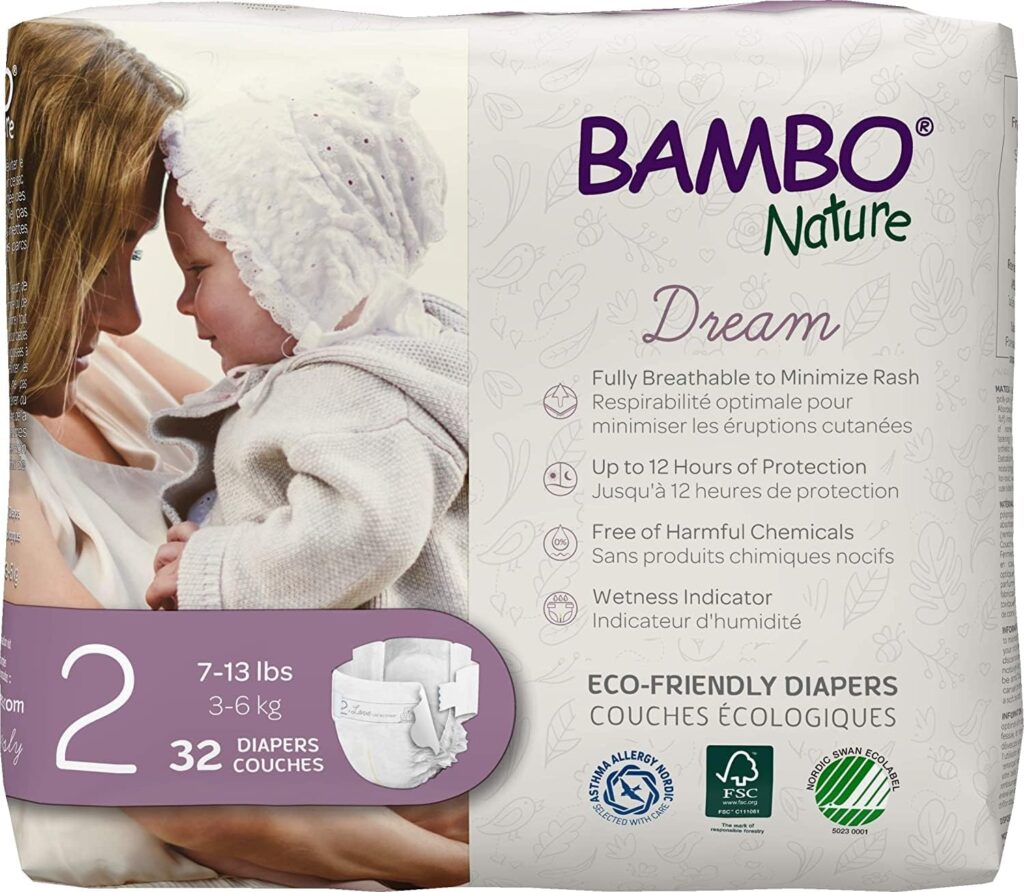
Comfort And Fit
Parents value a good night’s sleep, and choosing the right diapers is crucial. Your little one’s comfort and fit are paramount for uninterrupted slumber. A diaper that hugs your baby snugly while preventing leaks makes all the difference. Let’s explore the offerings from disposable and bamboo diapers in this aspect.
Disposable Diapers
Disposable diapers are a go-to for many families. They offer overnight absorbency to tackle long hours. Leakproof diapers are a must, and most disposables promise this feature. Here’s what they bring to the table for comfort and fit:
- Elastic waistbands: They adjust to your baby’s size.
- Flexible leg cuffs: These cuffs wrap neatly to prevent leaks.
- Soft materials: They keep baby’s skin cozy through the night.
Parents often choose disposable nighttime diapers for their convenience. But not all babies find these to be the most comfortable. Some disposables may lead to a diaper rash if they trap too much moisture.
Bamboo Diapers

Bamboo Vs. Disposable Overnight Diapers: Eco-Friendly Duel,Bamboo diapers are praised for their eco-friendly materials. They provide comfort with these unique features:
- Natural fibers: Bamboo is soft and breathable against delicate skin.
- Chemical-free: They help prevent diaper rash.
- High absorbency: Bamboo diapers handle heavy wetting well.
They are designed with a snug fit while allowing air to circulate. This helps in diaper rash prevention. Remember, a well-fitted bamboo diaper stays put even as your baby moves in their sleep.
Absorbency
The “Absorbency” factor can make or break a peaceful night’s sleep for both babies and parents. It’s essential for keeping moisture away from a baby’s delicate skin. Not all diapers are created equal when it comes to this crucial feature. Let’s dive into how disposable and bamboo options stack up.
Bamboo vs Disposable overnight Diapers : Eco Friendly duel
Disposable diapers are known for their high absorbency. They often contain super absorbent polymers that lock away wetness. This keeps babies dry through the night. Parents trust these soft diapers because they can handle multiple wettings.
- Quickly soaks up moisture
- Designed to last all night
- Gentle on skin diapers reduce irritation
| Brand | Absorbency Rating |
| Brand A | Excellent |
| Brand B | Good |
Bamboo Diapers
In the green corner, bamboo diapers stand out as breathable diapers. They are excellent for those with sensitive skin. Bamboo fibers create a rash-free diapers experience. They offer a natural, absorbent solution.
- Eco-friendly and absorbent
- Soft diapers that comfort overnight
- Minimize environmental impact
Both disposable and bamboo diapers serve the same purpose. Yet, their impact on comfort, skin health, and the environment differs. Parents may choose based on what’s most important for their baby’s needs.
Chemical Composition
Parents often ponder the materials touching their baby’s skin. Especially at night, when diapers are on the longest. Let’s dive into the materials making up disposable and bamboo diapers.
Disposable Diapers
Disposable diapers are common but complex. They have various materials and chemicals. Here’s a brief breakdown:
- Super Absorbent Polymer (SAP) – Soaks up liquid.
- Dyes and perfumes – For color and scent. Some babies may be sensitive to these.
- Plastic backsheet and tabs – Give shape and prevent leaks.
- Bleached wood pulp – Acts as absorbency layer.
- Adhesives – Hold the diaper together.
All these ingredients can lead to concerns about skin reactions and long-term health effects.
Bamboo Vs. Disposable Overnight Diapers: Eco-Friendly Duel
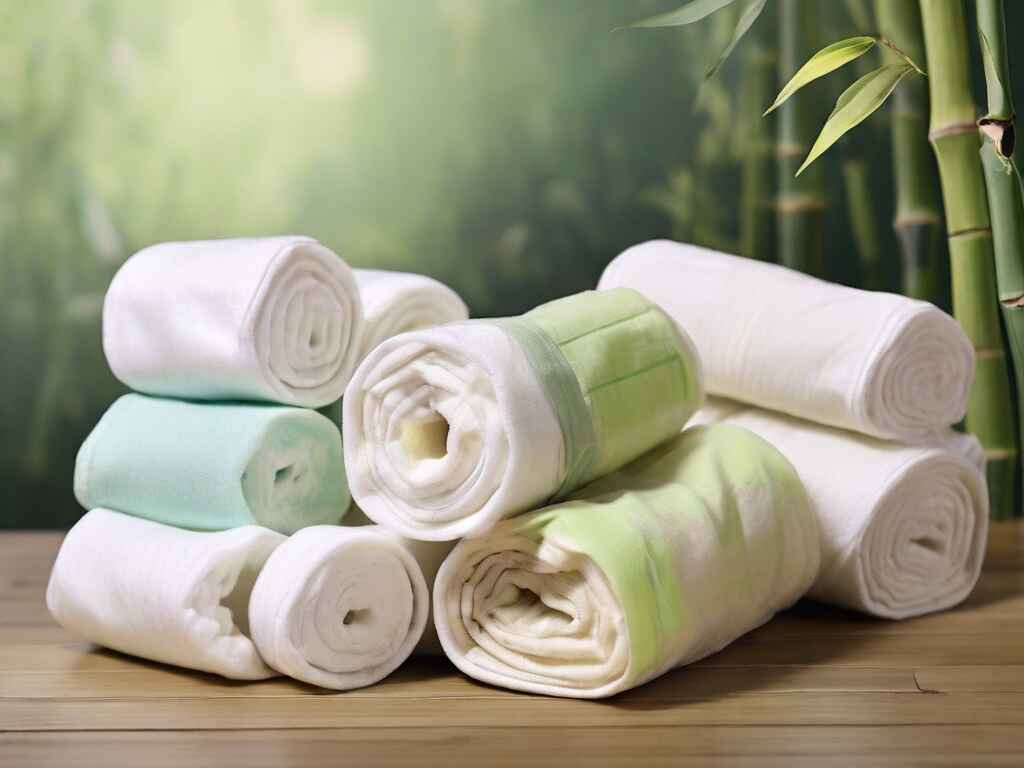
Bamboo diapers, on the other hand, boast a gentler formula:
- Biodegradable bamboo fibers – Soft and natural.
- No added chemicals – Safer for sensitive skin.
- Natural aloe liner – Soothes the skin.
- Free from dyes and perfumes – Reduces allergy risk.
- Compostable materials – Eco-friendly choice.
Bamboo diapers are a natural alternative. They hold promises for fewer skin irritations and a happier environment.
Environmental Impact
The fight to protect our planet has taken to one of the most intimate arenas of daily life: the changing table. The battle is between bamboo and disposable overnight diapers. Understanding their environmental footprints is crucial for eco-conscious parents. Let’s delve into the specifics and see how each type of diaper measures up in terms of sustainability.
Disposable Diapers
Disposable diapers create a significant impact on the environment. They are often made with a mix of plastics and other non-biodegradable materials. Here are the key points to consider:
- Non-biodegradable: They can take up to 500 years to decompose.
- Chemical usage: Production involves chemicals that may harm ecosystems.
- Resource-intensive: High water and energy usage for manufacturing.
Annual usage accounts for mountains of diaper waste in landfills. Each baby can use about 2,500 to 3,000 diapers a year, which adds up to enormous waste.
Bamboo Diapers
Bamboo diapers present a greener alternative. These eco-friendly options boast several significant benefits:
- Biodegradable: Mostly made from bamboo, they decompose much faster.
- Sustainable resource: Bamboo grows quickly and requires less water.
- Less chemical exposure: Fewer harmful chemicals are used in production.
By choosing bamboo diapers, parents can reduce their carbon footprint. Bamboo diapers reduce the pile of waste in landfills. One diaper can break down in about 75 days.
Let’s compare the impact:
| Disposable Diapers | Bamboo Diapers | |
| Decomposition | Up to 500 years | Approx. 75 days |
| Annual Landfill Contribution | High | Low |
| Chemicals Used | More | Less |
| Resource Consumption | High | Low |
In summary, bamboo diapers offer a transformative advantage for the environment. Parents can make a substantial difference in preserving nature for future generations. The choice seems clear: bamboo diapers are the way to go for those who prioritize the planet.
Cost-effectiveness
When choosing between bamboo and disposable overnight diapers, cost is a major factor. Parents want to know which option is more budget-friendly in the long run. The answer is not straightforward and depends on several considerations.
Disposable Diapers
Disposable diapers are often seen as the go-to choice for busy families. These diapers are convenient but can be costly over time. Let’s break down the expenses:
- Average use per night: Generally, a baby may use 1-2 disposable diapers.
- Cost per diaper: Prices vary, but on average it’s $0.20-0.30 per diaper.
- Annual cost estimate: This can add up to approximately $73-146 based on nightly usage.
| Time Span | Estimated Cost |
| 1 Month | $6-12 |
| 1 Year | $73-146 |
While initial costs are lower, disposable diapers might be less cost-effective in the long term.
Bamboo Diapers
On the other hand, bamboo diapers are eco-friendly and have a higher upfront cost. Consider their long-term financial benefits:
- Reusable nature: Can be washed and reused many times.
- Higher initial price: A single bamboo diaper ranges from $5 to $10.
- Quantity needed: About 18-24 diapers for rotation.
Total starting cost may range from $90 to $240. While the initial investment is significant, bamboo diapers could save money over time.
| Time Span | Estimated Cost |
| 1 Month | $90-240 (initial investment) |
| 2-3 Years | Same as initial investment |
Cost-effectiveness increases with bamboo diapers as they can last for years, making them a worthwhile investment.
Availability And Convenience
Parents often weigh the balance between availability and convenience in their diaper choices. Let’s explore options, namely bamboo and disposable overnight diapers. The mission is clear: finding the best fit for your lifestyle and your baby’s comfort.
Disposable Diapers
Bamboo Vs Disposable overnight diapers:Eco freindly Duel are everywhere, from supermarkets to online stores. Their convenience is unmatched:
- Found in most retail outlets.
- Wide range of brands and sizes.
- Easy on-the-go changes.
- No washing required.
In terms of diaper cost comparison, disposable options may seem cheaper initially. Yet, costs add up over time.
Bamboo Diapers
Bamboo diapers, a disposable diaper alternative, gain popularity for their eco-friendliness. Here’s what you should know:
- More likely found online than in-store.
- Eco-conscious brands offer subscription services for added convenience.
- Biodegradable elements make them better for the planet.
- Stocking up may require planning due to less widespread availability.
Although not as readily available as their disposable counterparts, bamboo diapers offer a greener alternative for those willing to seek them out.
| Diaper Type | Availability | Convenience | Relative Cost |
| Disposable Diapers | High | High | Varies |
| Bamboo Diapers | Medium | Medium | Higher upfront |
| Cloth Diapers | Low | Low | Lower long-term |
When deciding between bamboo diapers and disposable diapers, convenience often plays a deciding role. Remember, cloth diapers are another option, though they require more effort.
Nighttime Use
Bamboo Vs Disposable overnight Diapers, Choosing the right diaper for your baby is crucial for a good night’s sleep. Overnight use demands diapers that provide extra absorbency and comfort to help your little one stay dry and sleep soundly. In this section, we will compare disposable diapers and bamboo diapers to see which might be the best option for nighttime use.
Disposable Diapers
Disposable diapers are a popular choice for many parents due to their convenience. For overnight protection, these diapers often have special layers that absorb wetness quickly. The benefits of using disposable diapers at night include:
- High absorbency rates to keep the skin dry
- Leak-proof designs to prevent accidents
- Moisture-wicking materials that reduce diaper rash
Most brands offer specially designed overnight diapers which are bulkier and provide extra absorbency.
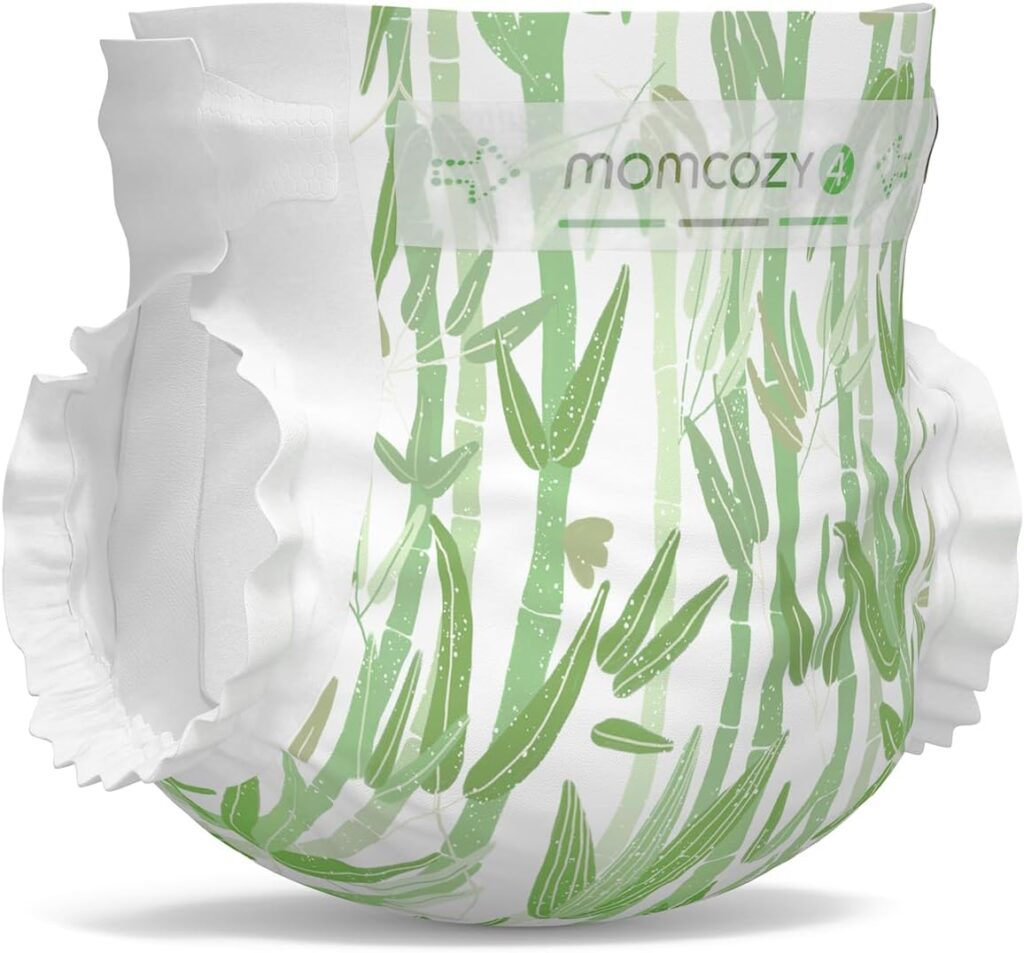
Bamboo Diapers
Bamboo diapers are an eco-friendly alternative that appeal to environmentally-conscious parents. They offer several features that make them a solid choice for nighttime use:
| Features | Benefits |
| Natural fibers | Gentle on the skin and reduces the risk of allergies |
| High absorbency | Keep babies dry throughout the night |
| Breathable material | Regulates temperature, preventing overheating |
They also decompose faster than disposables, making them a better choice for the planet.
Yet, they might be less absorbent than some overnight disposables. It is essential to test their effectiveness with your child to ensure they meet your overnight needs.
Frequently Asked Questions Of Bamboo Vs. Disposable Overnight Diapers
What Are The Benefits Of Bamboo Diapers?
Bamboo diapers offer eco-friendliness due to their biodegradability and are often softer and more absorbent than disposables, reducing the risk of diaper rash.
How Long Do Disposable Diapers Decompose?
It typically takes around 500 years for disposable diapers to decompose in landfills, posing significant environmental concerns.
Are Bamboo Diapers More Absorbent?
Yes, bamboo diapers are generally more absorbent due to bamboo’s naturally wicking fibers, which helps keep infants dry overnight.
Can Bamboo Diapers Reduce Diaper Rash?
Bamboo diapers can reduce the likelihood of diaper rash due to their breathability and superior moisture-wicking properties, which keep baby’s skin drier.
Do Disposable Diapers Contain Chemicals?
Yes, many disposable diapers contain chemicals like dioxins, phthalates, and fragrances, which could potentially cause skin irritations or other health concerns.
Is Switching To Bamboo Diapers Cost-effective?
Switching to bamboo diapers can be cost-effective in the long run, considering their reusability and the decreased need for diaper rash creams and treatments.
Conclusion
Choosing between bamboo and disposable overnight diapers is a personal choice. Eco-conscious parents may lean towards bamboo for its sustainability. Those prioritizing convenience might opt for disposables. Consider comfort, absorbency, and environmental impact before deciding. Your child’s needs and your values should guide your decision. Embrace the option that aligns best with your family’s lifestyle and beliefs.

